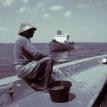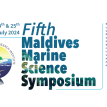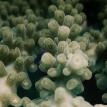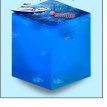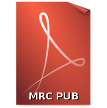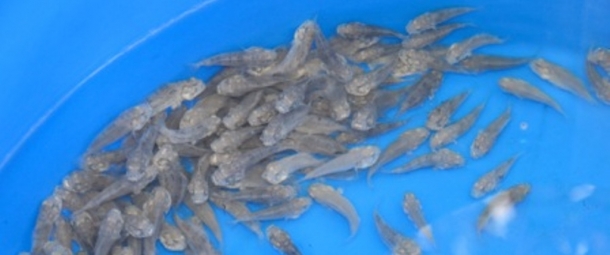
Aquaculture Research and Development Programme
19 October 2015
Aquaculture is a relatively new sector in the Maldives, in that it has only been in the past two decades that aquaculture-related activities began in the country, and to date only one commercial aquaculture venture is being operated.
Maldivians have always been very reliant on the capture fisheries - traditionally the pole-and-line skipjack fishery. The fisheries sector has diversified to include the reef fishery, as well as the more recent hand-line yellow fin tuna fishery. However, observations from the fishery status over the past few years are strongly suggestive of diminishing fish stocks, especially evident in the case of the commercially valuable reef fish species. Their behaviour and biology tend to make them very vulnerable to over-fishing, and this is no good news for a fishery that has shown (and continues to show) an ever increasing demand since its beginning.
Aquaculture of some of these high-valued aquatic animals could be a means to reduce stress from fishery on their wild populations. In addition to the potentially significant contribution to the fisheries stocks, aquaculture is also promoted as an activity that contributes to food security, creating employment, generation of foreign income and hence economic growth. The potential for aquaculture development in the Maldives is very high because of its very favourable geographic features and the abundance of a relatively clean seawater resource.
MRC's work on aquaculture development began in the early 1990s, with the objective of diversification of the fisheries sector and creating livelihood opportunities for the rural communities. The earliest work done by MRC on aquaculture included piloting seaweed farming and pearl culture in the Maldives. Seaweed farming proved unviable, but the pearl culture showed potential. MRC, with assistance from the United Nations Development Programme (UNDP) carried out a 5-year Pearl Culture Pilot Project, in which the techniques for the operation were refined to suit the local environments. A second 5-year project, the Pearl Culture Demonstration, Extension and Marketing project, also with UNDP assistance, commenced upon the successful completion of the pilot project. The project was carried out with the objective of establishing a community-based pearl culture operation, where the participating communities were trained both on the technical aspects as well as business management aspects, to make the project a success. Unfortunately, however, a commercial pearl culture operation failed to kick off in the community the project focused on. In addition to pearls, MRC also successfully carried out a project on breeding the Maldive Clown Fish, a species native to the Maldives, and of interest in the aquarium industry. Although commercial clownfish aquaculture is not in operation, there are a number of individuals practising their breeding at a hobbyist level.

The most recent aquaculture activities carried out by MRC include grouper and sea cucumber breeding programmes. MRC's aquaculture team have succeeded in rearing groupers from eggs to grow-out stages, although a lot more work is still required to improve the survival and growth of the young groupers. The team is also making final preparations to begin spawning trials for sea cucumbers. The aquaculture trials are being carried out at the Maniyafushi Field Station, on the island of Maniyafushi in South Malé Atoll. MRC plans on developing a centre at the field station, where practical aquaculture will be demonstrated, and the practical components of various aquaculture-related training programmes will be carried out.


An ongoing project of significance to aquaculture development is the Mariculture Enterprise Development Project (MEDeP), carried out with assistance from the International Fund for Agriculture Development (IFAD). MEDeP aims to support the establishment of an mariculture (the aquaculture of marine organisms) industry in the Maldives through supporting the development of a mariculture value chain. The key components of the project include the establishment of an aquatic animal quarantine facility to facilitate safe import of aquatic animals for aquaculture purposes, a multi-species hatchery that will cater to the needs of the small-holder grow-out operators by providing them with the required quantities of seed, and a financing mechanism (microcredit) for the grow-out operators.
Stay tuned for more updates on our mariculture programmes.

